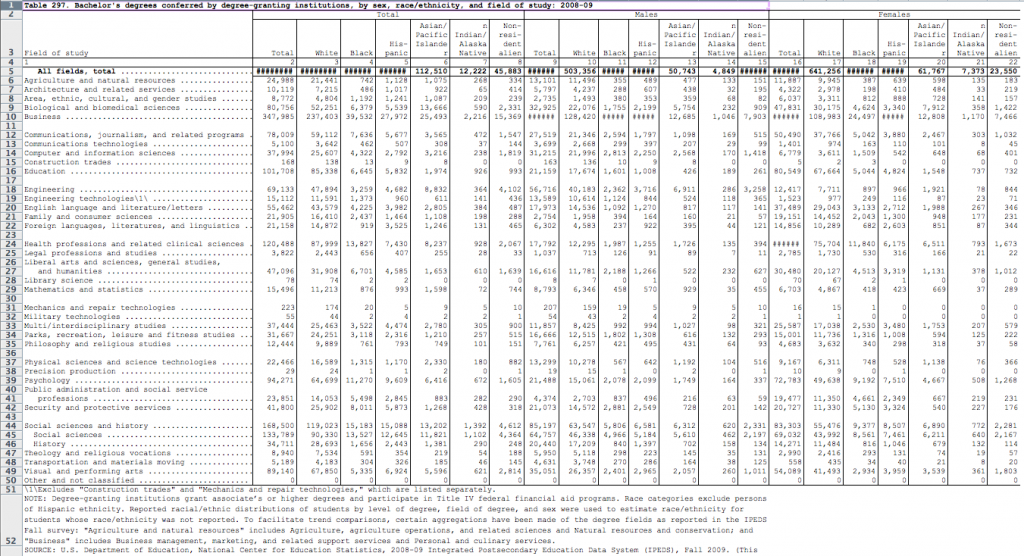Elements of Good NSF REU Proposal
The National Science Foundation supports about 70 sites for Research Experiences for Undergraduates in mathematics across the country. Proposals for the next summer are due the fourth Wednesday in August. A good proposal includes the following elements.
I. Research proposals: specific, accessible, genuine research problems, not overly prescribed. Involvement of capable and experienced or trained faculty, post-docs, graduate students.
II. Detailed plans for recruitment, including women and minorities, including personal contact with faculty and students through SACNAS, NAM, Alliance, AWM, other institutions, other networking, PAESME award winners. Include letters of support. See appendix by Velez below.
III. Detailed plans for summer, daily schedule, weekly schedule, team-building, housing preferably all together, education about graduate school, speaking (see e.g. Technically Speaking), technical writing (including TeX), social activities.
IV. Detailed plans for objective assessment and improvement.
V. Prior results:
Number of students.
How many in graduate school out of how many graduated from college.
Number of conference talks.
Number of student publications.
Number of women, number of minorities (perhaps offers as well as participants).
VI. Detailed plans for getting students to follow up with conference talks, publications, and graduate school. Venues for conferences talks include the MAA summer MathFest, the annual January joint mathematics meetings, and regional undergraduate mathematics conferences.
Note: Math-Stats Bachelor degrees are 57% men, 43% women, bit over 6% Hispanic, bit less than 6% black, see table at end below. All Bachelor degrees are 43% men, 57% women, bit over 10% black, bit less than 10% Hispanic (total 1.6 million/year). US population 17% Hispanic, 13% black (4 million Puerto Rico population, roughly 1% of US 300 million population, probably not included).
APPENDIX ON MINORITY RECRUITMENT
by William Yslas Vélez, University Distinguished Professor of Mathematics, The University of Arizona, Tucson, Arizona
One of the purposes of REU programs is to encourage the participating students to pursue post-graduate studies in the mathematical sciences. Increasing diversity in summer REU programs can serve to increase diversity in graduate programs in the mathematical sciences. Given the small percentage of minority mathematics majors it can be difficult to have a sizable pool of applicants for an REU program. However, given the small size of typical REU programs, only a few minority students are required to substantially increase the diversity component.Ingeneral, passive attitudes towards increasing diversity will not be effective. Just announcing a summer program through emails and flyers will not produce applications from minority students. Here are some suggestions.
Linking your REU project with minority serving institutions: Some universities are designated as Historically Black Colleges and Universities (HBCU) or Minority Serving Institutions (MSI); see US Department of Education lists. If there is such an institution in your geographic area, consider inviting a faculty member to participate in your program, and ask that faculty member to bring along some undergraduates. If there is no faculty member in the appropriate research area, perhaps a graduate student from that institution could be supported by the REU to help with the REU. After a couple of summers of this kind of close interaction, an effective recruiting mechanism will be established, not only for the REU program, but also with your graduate program, if you have one.
Oftentimes minority mathematicians are involved in efforts to increase diversity. Meeting and interacting with minority mathematicians is a way of establishing contacts with mathematicians who work to increase diversity. There are organizations whose aims are to increase diversity in mathematics and mathematics departments could send representatives to annual meetings of these organizations for the purposes of establishing contacts. Not only would this serve to increase diversity in REU programs but it would also impact graduate programs. The Society for the Advancement of Chicanos and Native Americans in Science (SACNAS) and the American Indian Science and Engineering Society (AISES) hold annual conferences. The National Association of Mathematicians (NAM) often sponsors special events at the national mathematics meetings.
Mathematicians have been recognized for their efforts to increase diversity. Presidential Awards for Excellence in Science, Mathematics and Engineering Mentoring (PAESMEM) recognizes individuals and organizations for the successes in increasing diversity. The AAAS also has mentoring awards, though there are fewer of these and most are not in mathematics. For programs that want to increase diversity, consulting with some of individuals listed among these awardees might prove useful.

 Welcome to my blog. I also have a blog at the
Welcome to my blog. I also have a blog at the